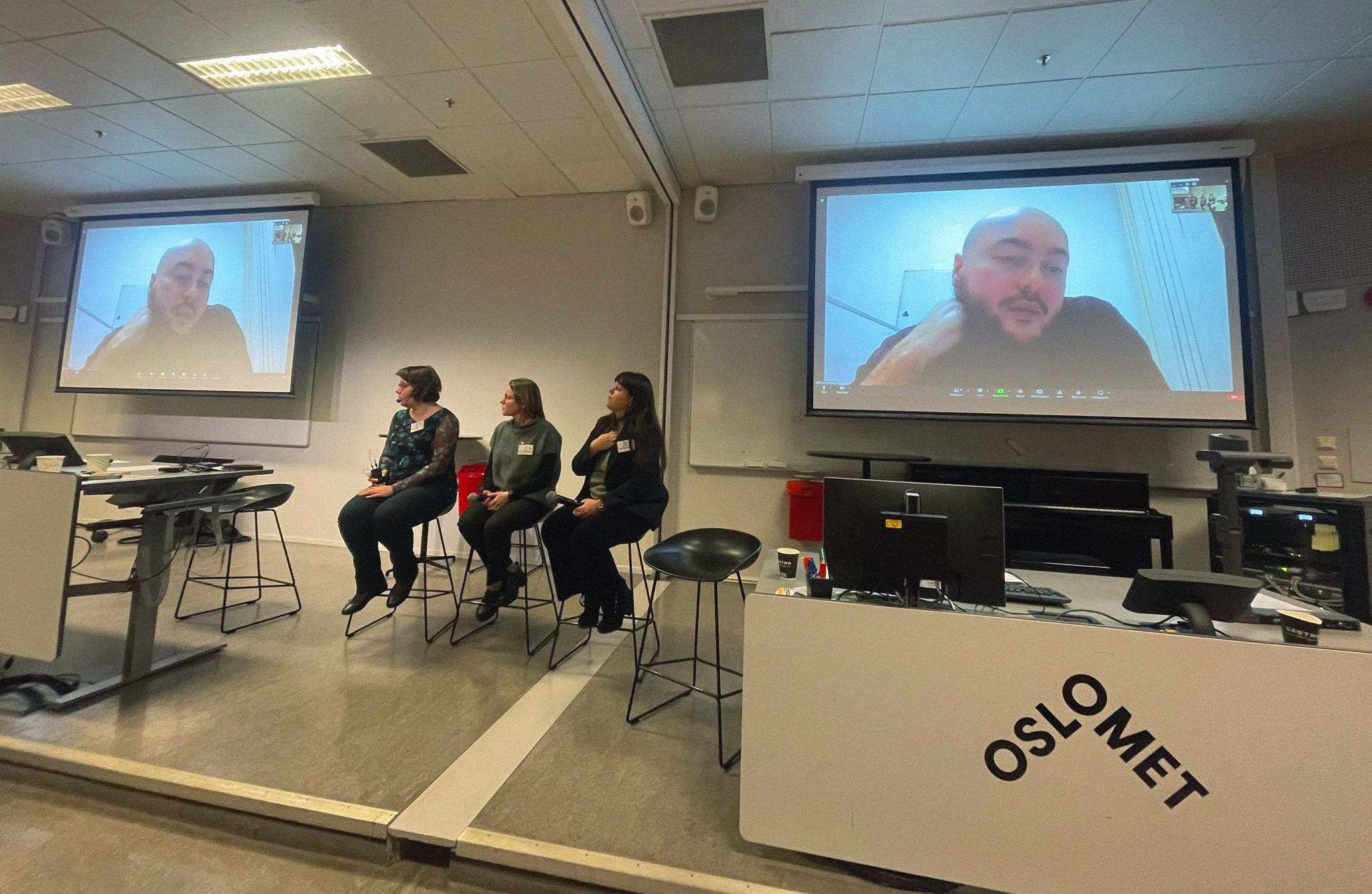“Justice should not depend on how and when the hostilities end,” Roman Nekoliak at the HROMADA – The Nordic-Baltic Research Society conference in Oslo

On November 30, Roman Nekoliak, coordinator of international relations at the Center for Civil Liberties, spoke at the conference “HROMADA – The Nordic-Baltic Research Society” in Oslo – at the panel “Panel III: War crimes. How securing justice for Ukraine contributes to the reconstruction process”, which was dedicated to war crimes.
Ensuring justice to the victims of Russia’s war crimes in Ukraine and their families is an essential matter for the post-war rebuilding of Ukraine. Though Russia’s war against Ukraine is the world’s most documented war, it will take time and a lot of efforts to prosecute all war criminals, especially those currently in power. Legal and procedural challenges are thereby aggravated by the politicization of everything related to the war and the making of the post-war European order. In this light, we invite contributions on the following non-exhaustive list of topics: (i) practices and challenges of documenting and investigating Russia’s war crimes in Ukraine; (ii) international cooperation and public-private interactions in the investigations of war crimes; (iii) the role of international courts in (re)building justice for Ukraine (also with regard to crimes committed by the Russian Federation and its citizens in connection with the annexation of Crimea and the occupation-through-proxy of some areas of Eastern Ukraine) and (iv) the potential support of Nordic and Baltic states and organizations.
“Since the Russian full-scale invasion of Ukraine on 24 February 2022, Russia has committed numerous war crimes and human rights violations. Ukraine’s civil society organizations have joined national resistance and defense efforts, expanding on their traditional advocacy and watchdog roles. In this regard, the Center for Civil Liberties (CCL) has had a crucial role in gathering records of war crimes after Russia’s latest invasion, building on its experience documenting war crimes and torture since the start of the War in Donbas in 2014.
Justice should not depend on how and when the hostilities end. The legal problem with the invasion is the accountability gap. The International Criminal Court does not have jurisdiction over Russia’s invasion of Ukraine, a crime of aggression. So who will guarantee justice for all the victims? Who will give a chance for justice to the hundreds of thousands of victims who will not be lucky enough to be selected by the International Criminal Court? To bring justice closer, it is important for Ukraine to ratify the Rome Statute and address the issue of universal jurisdiction,” said Roman Nekoliak.
As a result of the event, the Center for Civil Liberties was able to establish contacts with other speakers and organizers of the event. And based on the discussion at the end of the panel, recommendations will be prepared for the Scandinavian and Baltic partners.
The HROMADA network consists of researchers working at universities, research institutes and think tanks in the Baltic States and Northern Europe specializing in Ukraine. HROMADA is supported by NordForsk.

